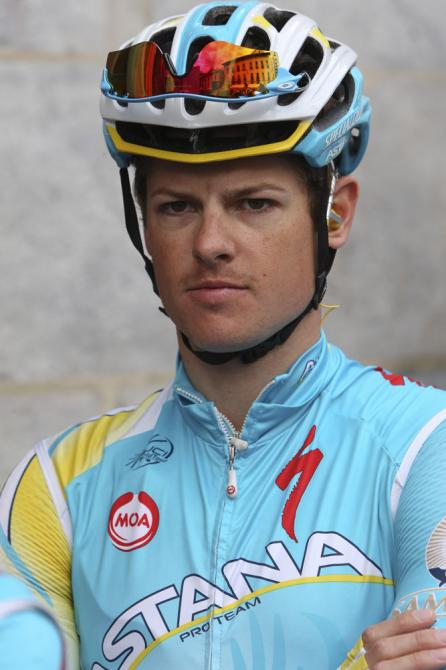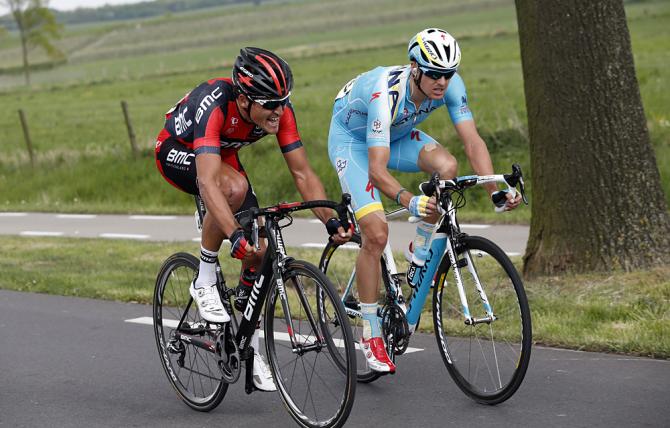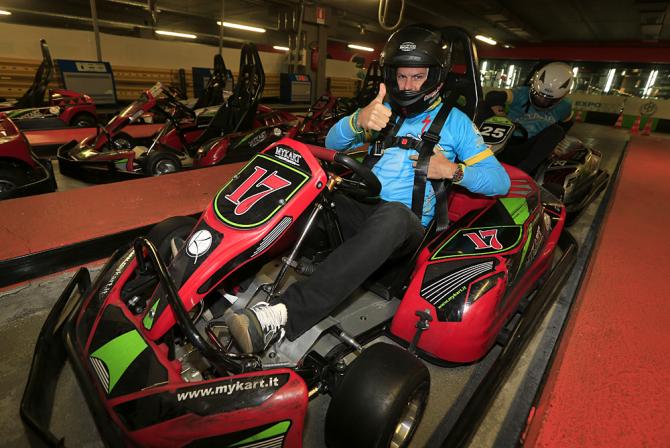Fuglsang reflects on lost opportunity in Amstel
Dane helped power dangerous late break with Van Avermaet and Voeckler



“Crunch moments’ in Amstel Gold on Sunday prior to Philippe Gilbert’s dramatic charge to victory up the Cauberg were noticeable by their absence - but if there was one moment before Gilbert attacked where journalist heads in the race’s press room collectively turned towards the TV screens, it came when a group of nine riders seared out of the pack with around 39 kilometres to go.
Sparked by Thomas Voeckler (Europcar) as the peloton wound its way over the Eyserbosweg, the move looked very dangerous, with riders such as Jakob Fuglsang (Astana) and Greg Van Avermaet (BMC) also present.
The sense that the move might just manage to stay away to the finish or perhaps see a lone rider ‘do a Kreuziger‘ - as in jump out of the break, and repeat the Czech’s lone triumph of 2013 - increased after doughty veteran Alexandr Kolobnev(Katusha) and one of the Classics most consistent performers, Bjorn Leukemans(Wanty-Groupe Gobert) bridged across.
The loss of Zdenek Stybar (Omega Pharma-Quick Step) after the former World Cyclo-Cross champion sat up was a big setback, though, given it ensured that the powerful Belgian squad were always going to work hard to chase down a break containing none of their riders.
Yet even as the relentless series of climbs and fast pace ensured more riders from the break followed Stybar’s example and dropped back, Fuglsang and Van Avermaet stayed stubbornly just out of the peloton’s clutches for longer than might have been expected. The duo even caught the two survivors from the day-long break, Preben Van Hecke (Topsport-Vlaanderen) and Christophe Riblon (Ag2R La Mondiale), before the peloton swallowed the quartet up seven kilometres from the line.
“I had my chance, maybe the break went a little too early, but we needed to have somebody there and I was in a good position when we hit the climbs there,” Fuglsang told Cyclingnews after crossing the line in 29th place.
“It was difficult when it came down to two of us, but we certainly tried. We gave it everything once we were alone, but it was a hard day with the strong winds.”
Get The Leadout Newsletter
The latest race content, interviews, features, reviews and expert buying guides, direct to your inbox!
The Astana pro recognised that it had taken a very long time for the race to spark into life, with little real movement in the pack until Voeckler shot out of the pack.
“It was a strange race because the speed was so high, [rather than attacking] everybody was focussing on staying in a good position because of the wind, too,” he analysed.
“All in all, at least, I’m happy with my condition,” and as he pointed out, with Fleche and Liege-Bastogne-Liege to come, more chance may come his way.
Voeckler was pleased with his form, too, telling L’Équipe afterwards that “it was a good break there but it all came back together again,” but that “I finished the race the most satisfied that I’ve been in the season” - previously badly affected by the knock-on effects of a broken collarbone - “so far.”
Alasdair Fotheringham has been reporting on cycling since 1991. He has covered every Tour de France since 1992 bar one, as well as numerous other bike races of all shapes and sizes, ranging from the Olympic Games in 2008 to the now sadly defunct Subida a Urkiola hill climb in Spain. As well as working for Cyclingnews, he has also written for The Independent, The Guardian, ProCycling, The Express and Reuters.
